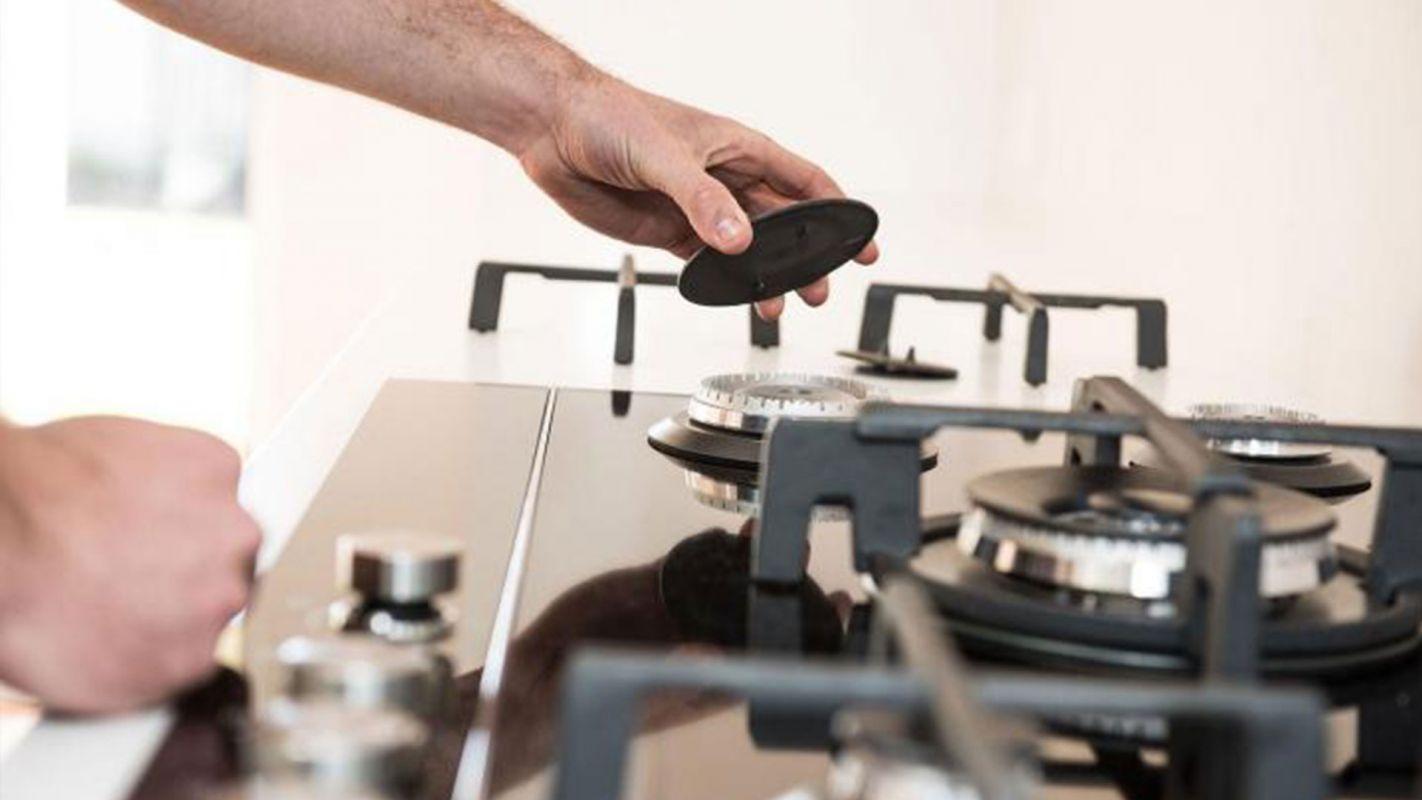Picture this: you're preparing dinner for your family when suddenly your kitchen cooker stops working completely. The stress hits instantly as you realize your meal plans are derailed. Before you panic or consider expensive replacements, understand that most cooker issues have practical solutions that won't break your budget.
Identifying Issues That Require Professional Cooker Repair
Recognizing when your appliance needs professional attention can prevent minor problems from becoming major disasters. Expert cooker repair services can diagnose complex issues and provide lasting solutions that restore your kitchen's functionality. Professional cooker repair ensures safety standards are maintained while addressing root causes rather than temporary fixes.
Electric System Failures
Electric cooking surfaces that refuse to heat up usually indicate specific component failures. Individual heating elements commonly burn out after extended use and require replacement with compatible parts.
Connection problems can prevent electrical current from reaching heating components effectively. These connections gradually loosen due to repeated thermal expansion and contraction cycles.
Malfunctioning control switches fail to deliver power to functioning heating elements, making temperature adjustments impossible. Control circuits can deteriorate from frequent use and exposure to kitchen heat.
Gas-Related Malfunctions
Gas appliances face unique challenges that differ significantly from electric models. Blocked gas ports restrict proper fuel delivery to burner locations, creating weak flames or complete ignition failure.
Contaminated ignition systems struggle to generate sufficient sparks for reliable gas lighting. Grease accumulation and food debris frequently cause these ignition difficulties that worsen over time.
Defective gas regulation valves cannot control fuel flow accurately, affecting temperature consistency and cooking performance throughout your appliance.
Temperature Management Issues
Inconsistent temperature control makes precise cooking nearly impossible and affects meal quality significantly. Malfunctioning thermostats cannot accurately detect heat levels, causing temperature fluctuations that ruin recipes.
Compromised temperature sensors provide incorrect feedback to control systems, leading to overheating or inadequate cooking temperatures that compromise food safety.
Broken control knobs with internal damage make precise temperature selection challenging and can create safety hazards during operation.
Safety Concerns Requiring Immediate Professional Help
Gas leaks demand urgent professional intervention regardless of timing or convenience. Even minor leaks can escalate rapidly into serious household hazards requiring immediate evacuation.
Electrical problems involving visible sparking, burning odors, or damaged wiring pose fire and electrocution risks. These dangerous conditions require expert diagnosis and specialized safety equipment.
Combined gas and electrical issues create especially hazardous situations that only trained technicians should handle using proper safety protocols.
Selecting Quality Repair Services
Essential Service Credentials
Licensed technicians possess proper training for both gas and electrical appliance repairs. Different repair types require specific certifications and demonstrated competency levels.
Comprehensive insurance coverage protects homeowners from liability during repair work. Always verify that services maintain adequate insurance policies before allowing access.
Experience with your specific appliance brand significantly impacts repair quality and completion time. Familiar technicians work more efficiently on equipment they understand thoroughly.
Evaluating Service Quality
Punctual arrival with proper identification demonstrates professionalism and respect for your schedule. Quality services maintain consistent communication throughout the repair process.
Clear explanations about problems and solutions help you understand repair necessity and costs. Avoid services that rely heavily on confusing technical jargon.
Detailed written estimates prevent unexpected charges and allow cost comparison between different service providers.
Understanding Professional Repair Procedures
Expert technicians begin every job with comprehensive safety assessments before starting any repair work. They systematically check for gas leaks, electrical hazards, and proper ventilation using specialized detection equipment.
Methodical problem diagnosis follows proven troubleshooting procedures that identify issues accurately without guesswork. Professional diagnostic tools reveal problems that aren't visible through casual inspection.
Quality repairs utilize manufacturer-approved parts and follow industry safety standards for lasting results. Thorough testing verifies proper function, safety compliance, and performance optimization.
Preventive Maintenance for Longevity
Daily Care Practices
Address spills immediately before they harden and create cleaning challenges. Fresh spills remove easily, while dried residue requires aggressive scraping that can damage surfaces.
Use manufacturer-recommended cleaning products designed specifically for your appliance type. Generic cleaners may contain chemicals that damage finishes or create safety concerns.
Maintain adequate ventilation during cooking to prevent moisture accumulation that can cause corrosion and electrical component damage.
Regular Maintenance Schedule
Perform weekly deep cleaning of accessible surfaces using approved methods and products. Regular cleaning prevents buildup that affects performance and creates safety hazards.
Monthly safety inspections should include checking gas connections, testing safety features, and verifying proper ventilation function throughout your kitchen area.
Consider annual professional maintenance visits to identify developing problems before they require expensive emergency repairs.
Cost-Effective Repair Strategies
Appliance age and overall condition significantly influence repair cost justification. Generally, repairs make financial sense when costs remain below 50% of replacement value for units under ten years old.
Compare multiple service quotes for expensive repairs, as pricing can vary significantly between qualified providers offering similar services.
Regular maintenance prevents most costly repair scenarios while extending appliance lifespan and maintaining optimal performance levels.
Frequently Asked Questions
How do I know when my cooker needs professional repair? Signs include gas odors, electrical sparking, inconsistent heating, ignition failures, or any safety concerns. Professional cooker repair ensures proper diagnosis and safe resolution.
Can I repair my gas cooker myself? Gas appliance repairs require specialized training and certification for safety. Always use professional cooker repair services for gas-related issues to prevent dangerous situations.
How long do cooker repairs typically take? Most repairs complete within 2-4 hours, depending on problem complexity and parts availability. Emergency repairs may take longer if specialized components need ordering.
What should I expect to pay for cooker repair services? Repair costs vary based on problem complexity, parts needed, and service provider rates. Simple repairs may cost $100-200, while complex issues can range $300-500.
How can I prevent future cooker problems? Regular cleaning, proper ventilation, immediate spill cleanup, and annual professional maintenance significantly reduce repair needs and extend appliance lifespan.
Is it worth repairing an older cooker? If repair costs exceed 50% of replacement value or the appliance is over 15 years old, replacement often provides better long-term value than continued repairs.






